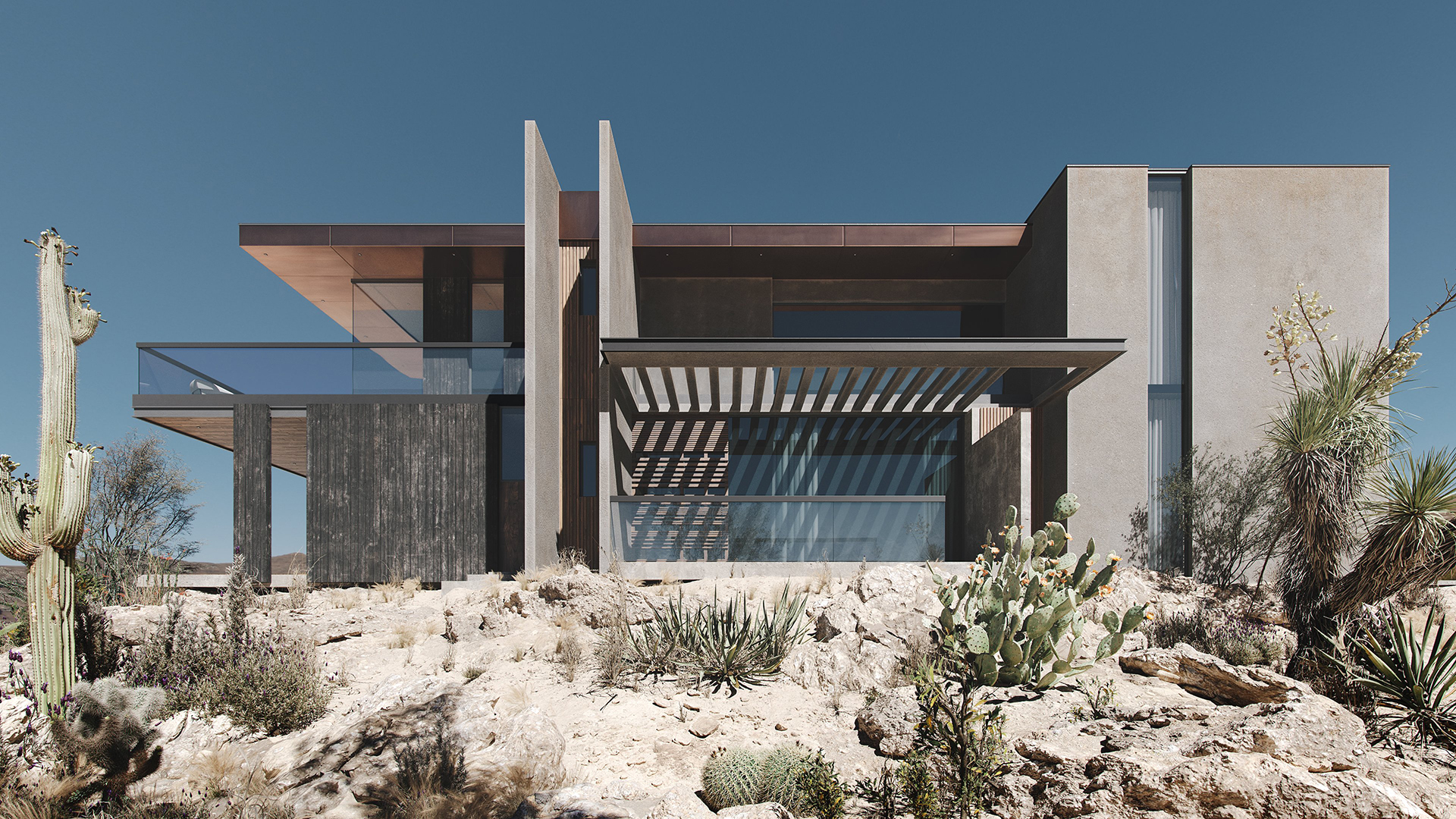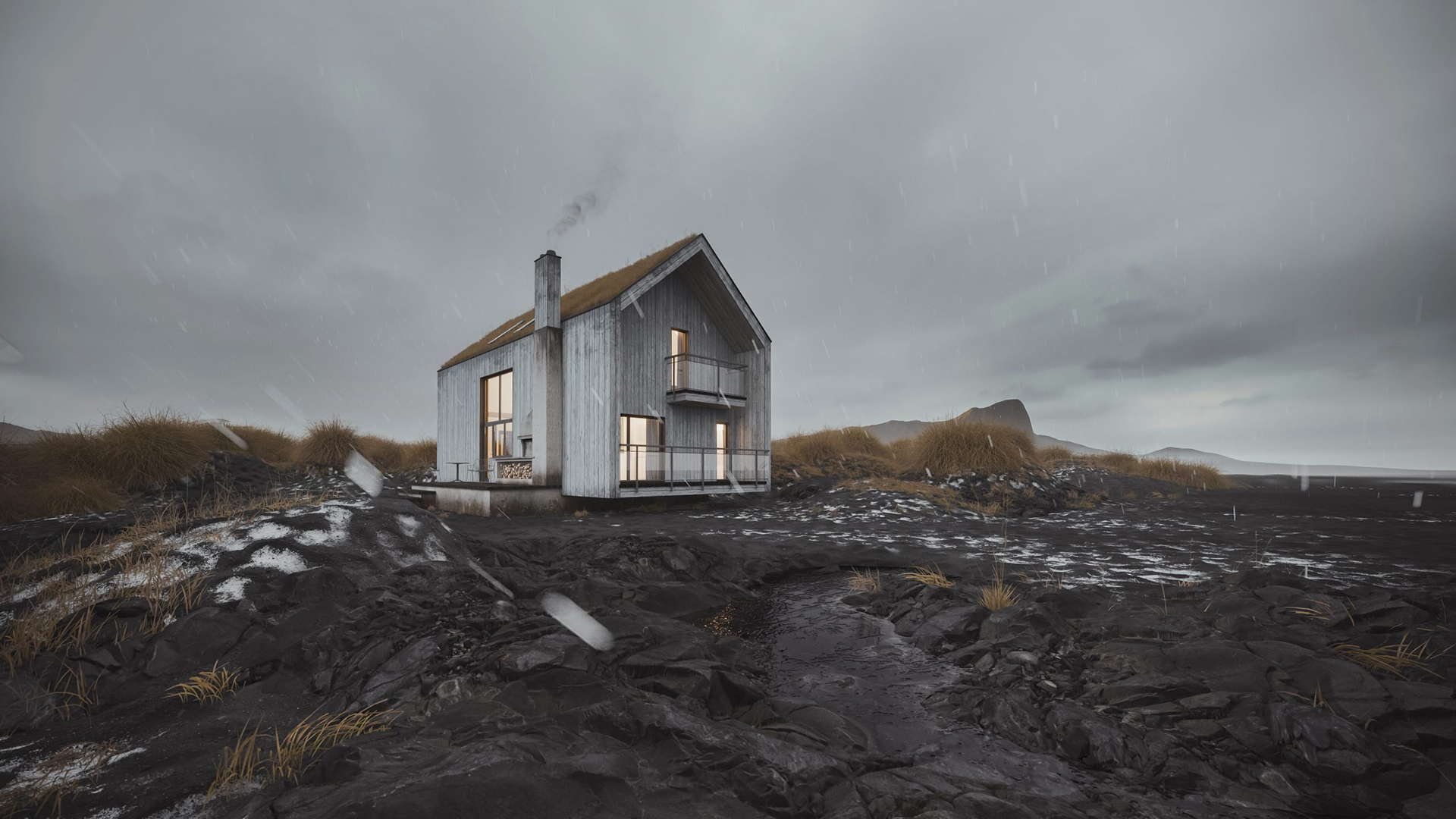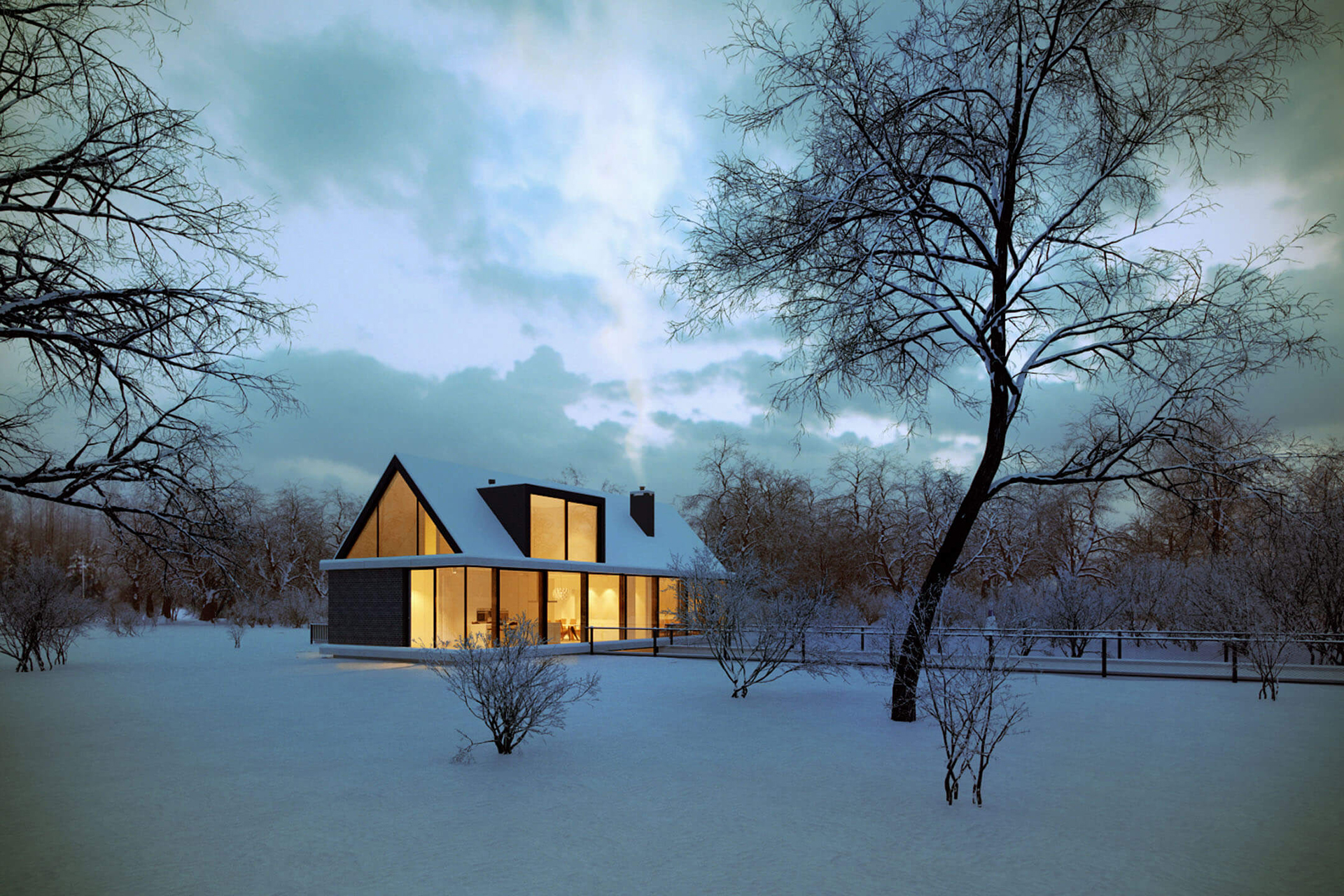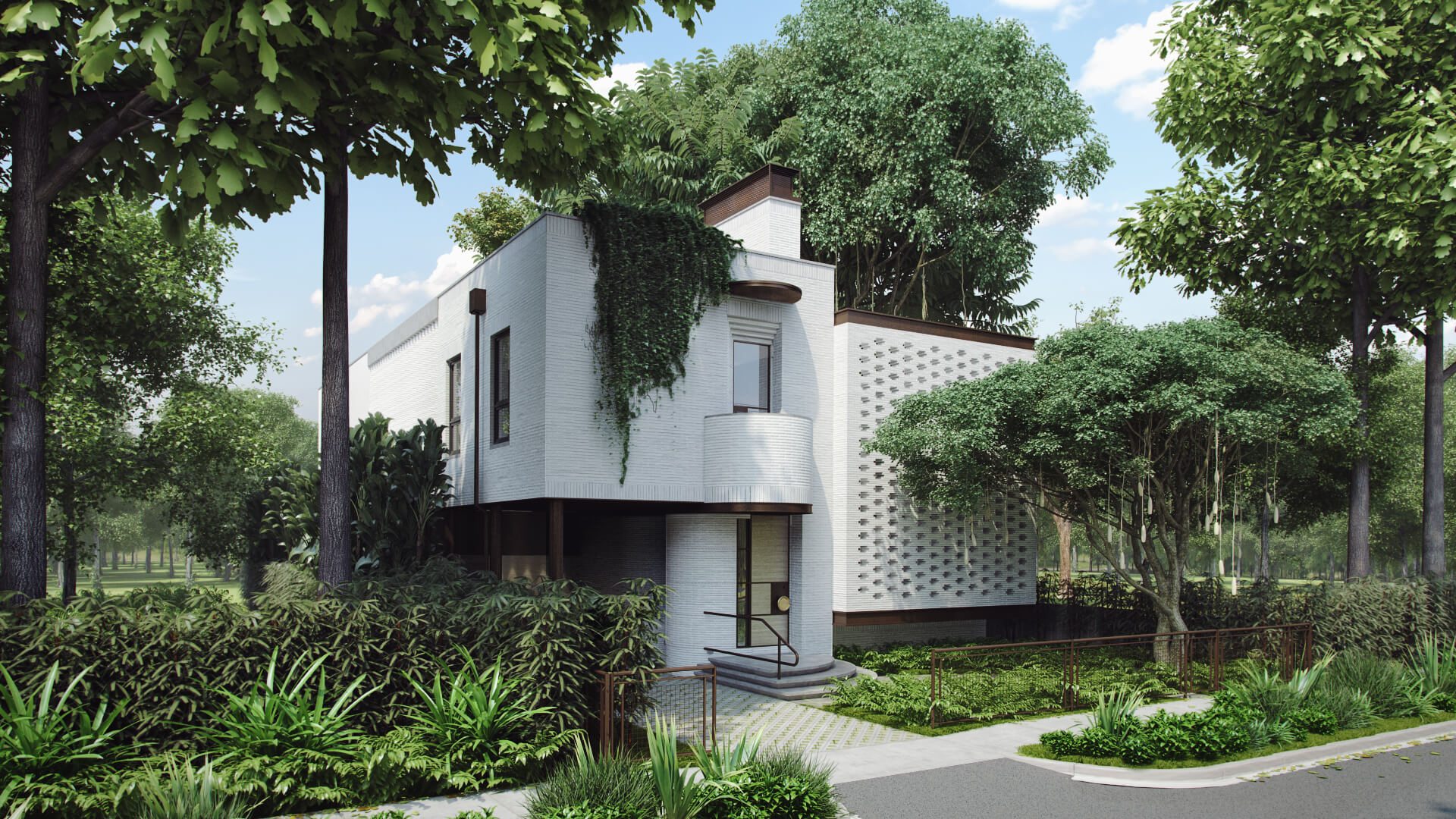An architectural business is only one half design work. The other half is building trusting relationships with clients. Some would go as far as to say that the latter is more important, and for a good reason. In the current hyper-competitive architectural market, the ones who attract and keep the most customers stay in business and prosper. No matter how talented an architect is, if he or she can’t win over the hearts and minds of potential clients, there will be no much work for this expert. Instead, the competitors that are capable of establishing rapport would have the upper hand.
So, there’s the question — how to attract and build trust with clients? It’s pretty obvious that an architect would need solid communication skills to pull that off. However, it requires more than just being an expert conversationalist. To communicate with customers effectively, architecture experts need great visuals to back words up. An architectural 3D visualization studio can provide them with just the right tools for that. Let’s see how 3D residential exterior renderings can make the difference!
#1. Architectural portfolios with 3D renders help prove an expert’s competence

Before choosing a residential design specialist, customers need to make sure that the expert they decide to work with is proficient enough. If an alleged professional only has a few photos of previous projects to show, this wouldn’t look convincing. To showcase their proficiency, architects need large and outstanding portfolios. But creating such a portfolio proves to be quite a challenge. That is because architects usually need to wait until the building is finished to take photos of it. Which limits the number of completed projects in portfolios. This is a serious issue, especially for individual specialists and small companies. They often need several years to accumulate a large gallery of finished works. Fortunately, residential exterior renderings can help overcome this hurdle.
To create architectural CGI, 3D artists don’t need to wait for the properties to be built and furnished. This allows project authors to visualize their works without waiting for too long. In the same way, 3D visualizations can be used to recreate designs that for some reason didn’t make it past the approval stage. A vast and diverse portfolio will immediately show an architect’s proficiency and prove his or her popularity. As a result, motivated prospects will be easier to communicate with initially.
#2. Residential exterior renderings help clients figure out what kind of design they want

So, the prospect is interested and contacts an architectural business. However, most people have next to none experience working with architects, and can’t precisely explain what they want. This makes communication difficult and bogs workflow down.
Before CGI was popularized in architecture, building rapport with such customers was a difficult task. With residential exterior renderings, however, understanding clients’ needs becomes significantly easier. An architecture specialist can show 3D visualizations of his or her previous designs and see what clicks with the customer. After the general idea is established, it’s also possible to elaborate on the details by browsing through 3D renders of different layout and style options.
No more need for lengthy explanations and decoding blueprints. 3D exterior renderings speak for themselves, helping people clearly understand what they want. By the end of this process, architecture experts flesh out the ideas of future buildings, catering to the specific needs of customers. Then, it is possible to visualize those ideas on residential renderings as well. This way, the house owners will see how their future home will look and understand if they like it or not.
Make sure your exterior design project takes your clients’ breath away
#3. Exterior renderings accentuate the desired selling points of the projects

After assessing the project, an experienced exterior designer points out several of its selling points and enhances them in blueprints and plans. But how to explain them to a customer who can’t read drawings? As was mentioned previously, a person without an architectural background won’t be able to decipher the building’s data. While verbal explanations will not paint the whole glorious picture.
Thankfully, residential exterior renderings can easily solve this problem. They can showcase every benefit of a property in the best light. For instance, if the selling point of the project is its innovative eco-friendly design, 3D artists can recreate all the architectural solutions precisely. Any other stylistic and functional choices the author envisions can be visualized with realistic exterior rendering. The future residential property owners may not even imagine how great their lots would look, but CGI would present them in all their glory. This way, 3D renderings provide homeowners with proof that this project is exactly what they`ve been looking for.
#4. CGI allows the customers to connect with future residential properties on an emotional level

Showing how great the future building would look may prove convincing. But to leave a lasting impression, architects should go the extra mile. To build a solid rapport with clients, designers can order exterior renderings with a “lived-in” look. So, how to do it right?
After communicating with future homeowners, a professional should have a pretty good grasp on what kind of people they are working with. Using this knowledge, architecture specialists can order residential exterior renderings with additional lifestyle elements. These can include a family van approaching the garage, gardening tools lying outside, a sandbox with toys — anything that would reflect a client’s everyday life. As a result, the future properties’ owners will feel an emotional connection to the presented building. Which will firmly cement their desire to live in it.
#5. Residential exterior renderings let architects quickly apply changes to projects

No matter how perfect communication is, corrections are inevitable during the design development process. Perhaps the homeowners have discovered some stylistic elements they want to include in their future residential property. Maybe the location has changed or there are some budget constraints. Regardless of the cause, changes have to be implemented quickly and efficiently. This is where residential exterior renderings shine.
If something in design has to be edited, a 3D artist can add and remove elements to already existing 3D scene seamlessly. After that, the new CG renderings will be made, with all changes showcased from different POVs. As a result, the customers will be grateful that all their desires were included in the updated version of projects so quickly, and in photoreal quality as a cherry on top!
Some may say that building rapport with architects’ clients is all about communication, but they are only partially right. An architecture professional should not only be an expert negotiator but also have the best tools to back him or her up. These tools are high-quality residential exterior 3D renderings.
Portfolios filled with photoreal CGI help attract prospects and make them more open to communication. With 3D visuals, architecture experts can understand what customers want and cater to those needs by accentuating all the selling points of future properties. To make prospects emotionally connect with the design, authors can order residential exterior renderings with lifestyle elements. And if the homeowner wants something changed in the project, this can be done quickly and easily with CG visualization.
Get your project estimated in just 1 hour - fill out this brief!
Want to establish rapport with clients of your architecture firm easier than ever before? Equip yourself with the best tools for the job with our 3D exterior rendering services!

Catherine Paul
Content Writer, Editor at ArchiCGI
Catherine is a content writer and editor. In her articles, she explains how CGI is transforming the world of architecture and design. Outside of office, she enjoys yoga, travelling, and watching horrors.



Comments
Lily Williams